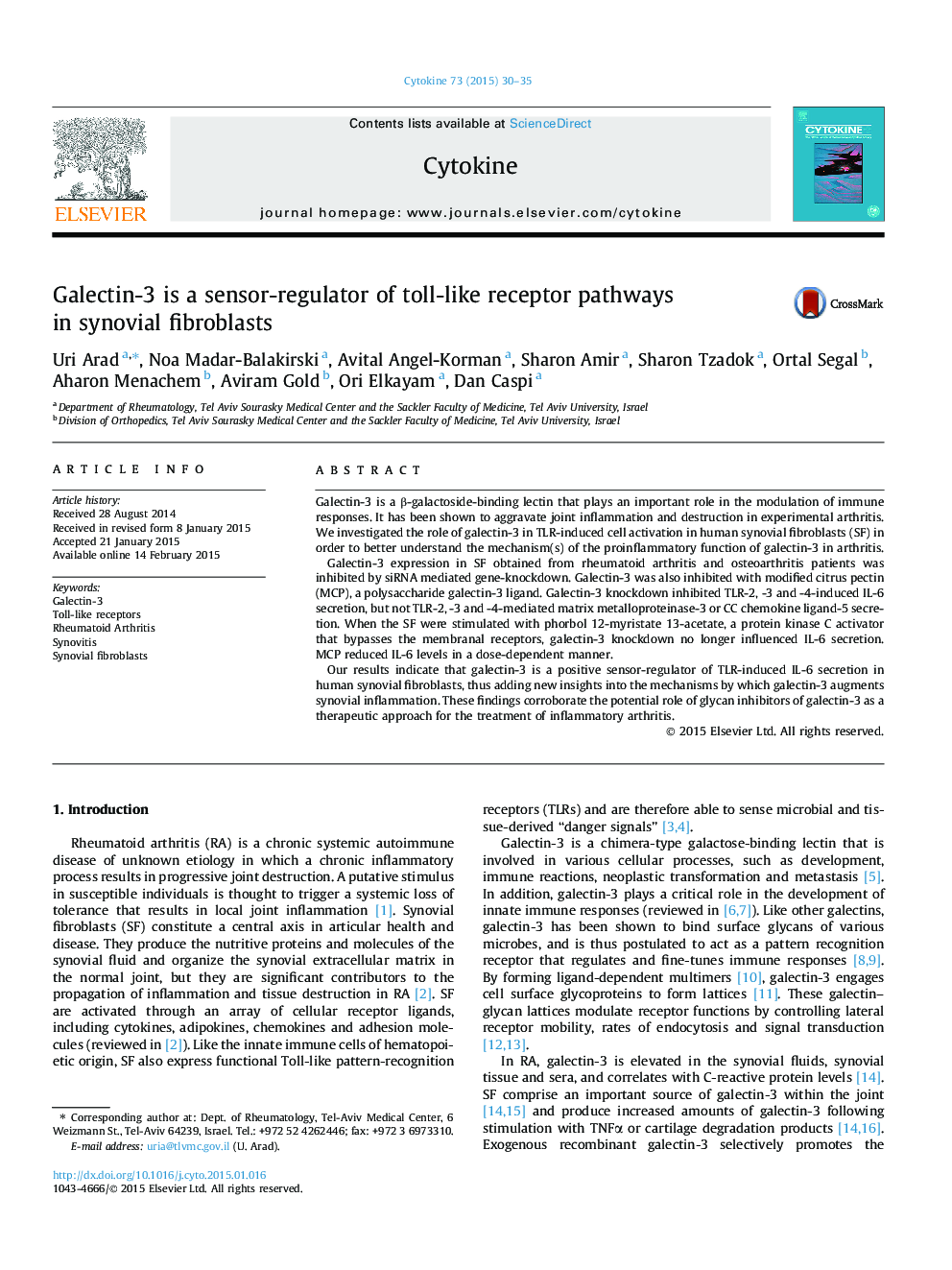| Article ID | Journal | Published Year | Pages | File Type |
|---|---|---|---|---|
| 2794024 | Cytokine | 2015 | 6 Pages |
•Galectin-3 inhibition attenuates TLR induced cytokine secretion in human synovial fibroblasts.•Galectin-3 affects upstream events in Toll-like receptor activation.•Galectin-3 glycan inhibitors might have therapeutic potential in arthritis.
Galectin-3 is a β-galactoside-binding lectin that plays an important role in the modulation of immune responses. It has been shown to aggravate joint inflammation and destruction in experimental arthritis. We investigated the role of galectin-3 in TLR-induced cell activation in human synovial fibroblasts (SF) in order to better understand the mechanism(s) of the proinflammatory function of galectin-3 in arthritis.Galectin-3 expression in SF obtained from rheumatoid arthritis and osteoarthritis patients was inhibited by siRNA mediated gene-knockdown. Galectin-3 was also inhibited with modified citrus pectin (MCP), a polysaccharide galectin-3 ligand. Galectin-3 knockdown inhibited TLR-2, -3 and -4-induced IL-6 secretion, but not TLR-2, -3 and -4-mediated matrix metalloproteinase-3 or CC chemokine ligand-5 secretion. When the SF were stimulated with phorbol 12-myristate 13-acetate, a protein kinase C activator that bypasses the membranal receptors, galectin-3 knockdown no longer influenced IL-6 secretion. MCP reduced IL-6 levels in a dose-dependent manner.Our results indicate that galectin-3 is a positive sensor-regulator of TLR-induced IL-6 secretion in human synovial fibroblasts, thus adding new insights into the mechanisms by which galectin-3 augments synovial inflammation. These findings corroborate the potential role of glycan inhibitors of galectin-3 as a therapeutic approach for the treatment of inflammatory arthritis.
